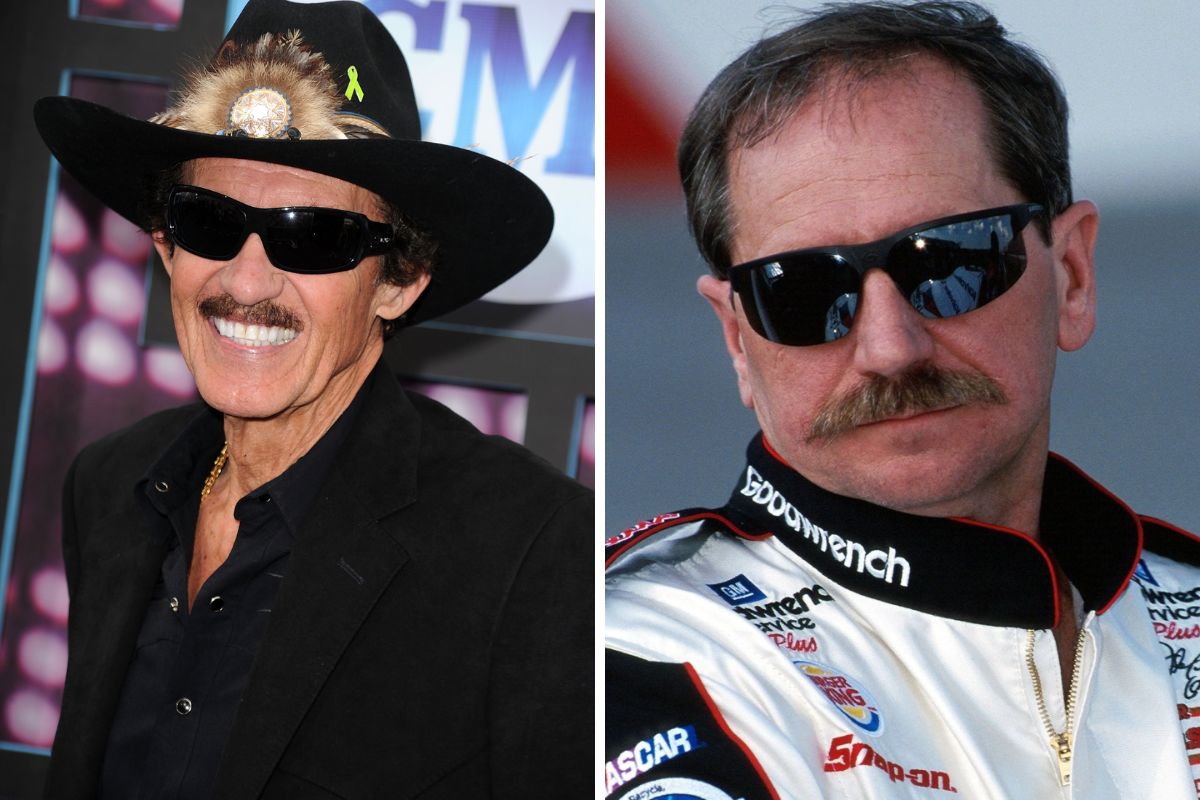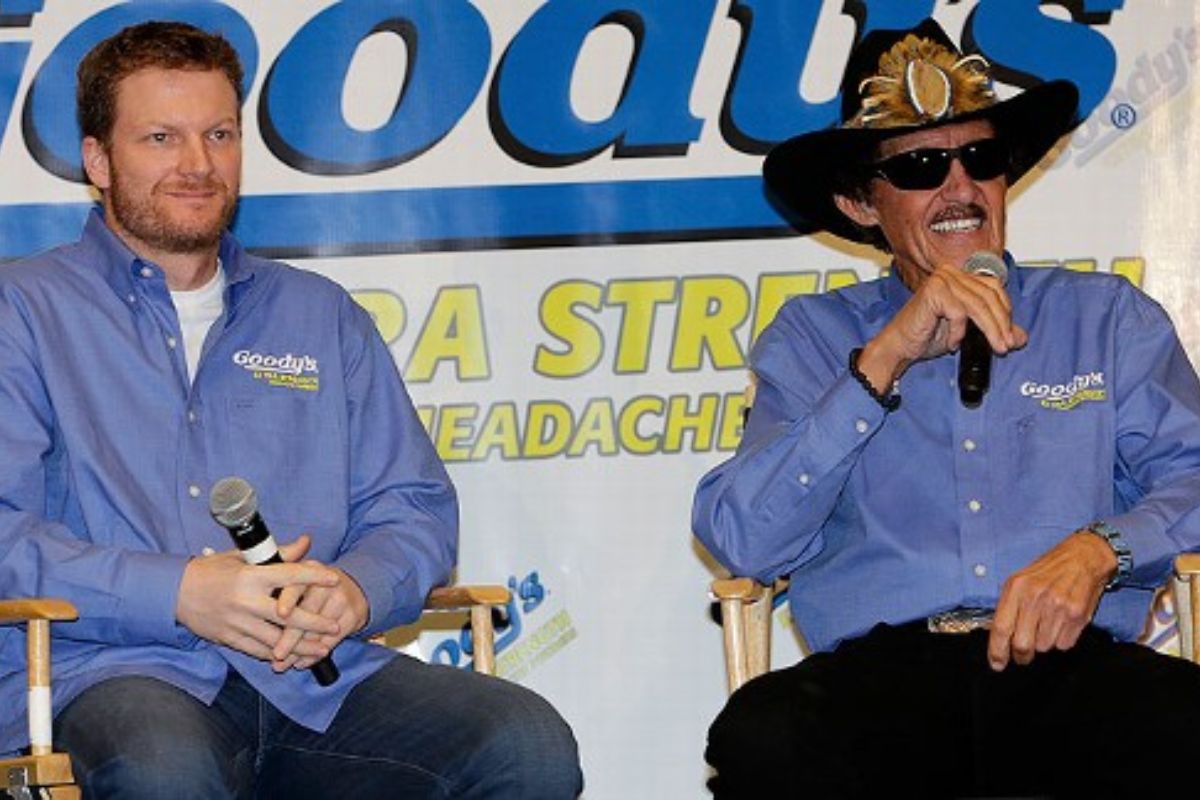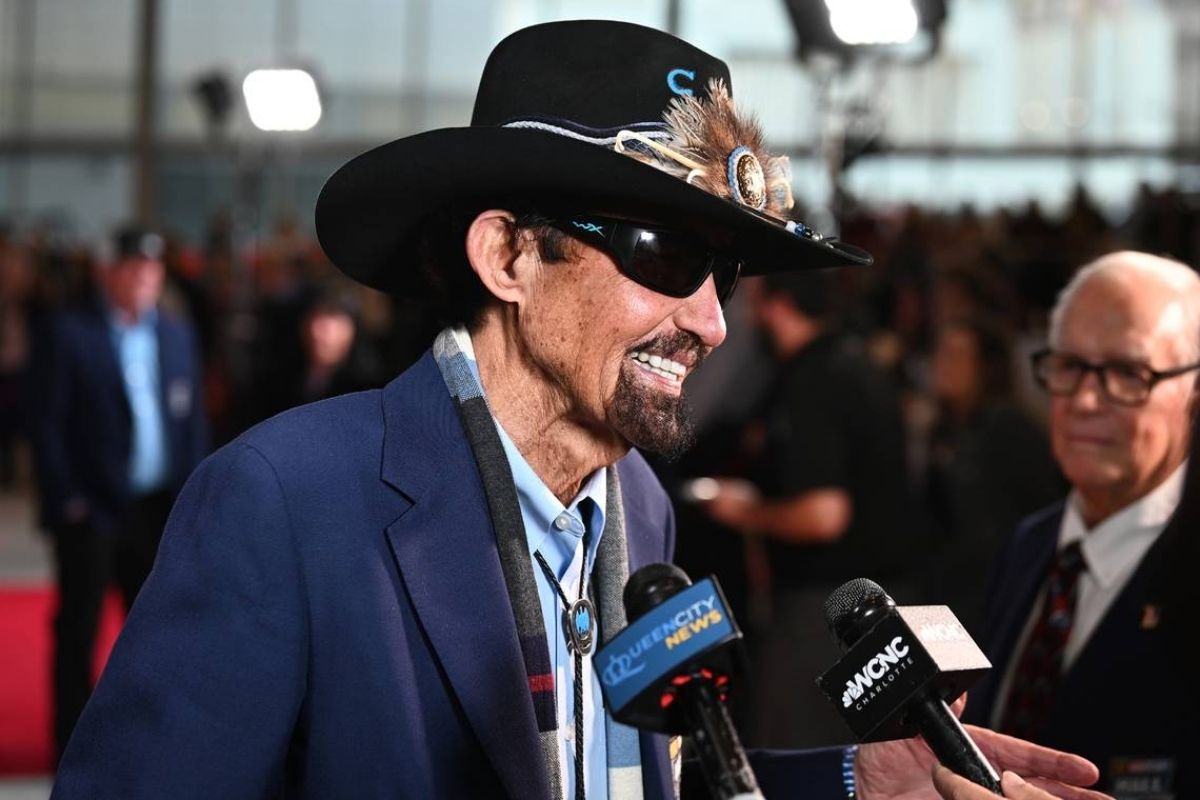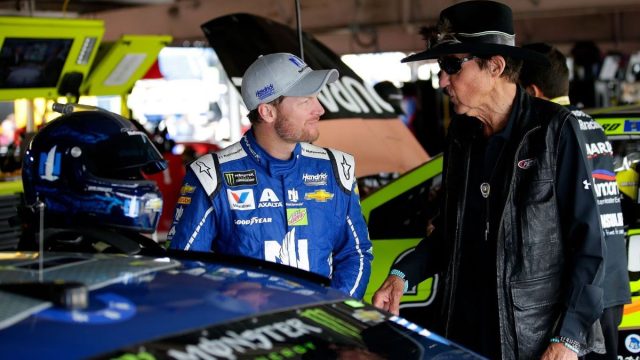Richard Petty’s Epic Encounter: The collision between Richard Petty and Dale Earnhardt at Martinsville Speedway is more than a mere anecdote in NASCAR’s storied history; it represents a critical intersection where the sport’s past met its future. This encounter, occurring during Earnhardt’s nascent season, not only showcased the aggressive driving style that would come to define his illustrious career but also highlighted a moment of transformation within NASCAR—from the polite competitiveness of Petty’s era to the bold assertiveness of the modern racing ethos.
Key Takeaways
- The clash occurred at Martinsville Speedway, marking a significant event in NASCAR history.
- It happened during Dale Earnhardt’s rookie season, showcasing his aggressive driving style.
- The incident involved a collision with Richard Petty’s car, a symbol of the sport’s changing dynamics.
- This confrontation highlighted the shift from NASCAR’s old guard to a new era of bold competitors.
- The incident underscored the evolving competition landscape within NASCAR, paving the way for future legends.
Petty’s Martinsville Incident with Dale Earnhardt
At Martinsville Speedway, the clash between 7x NASCAR Cup Series champion Richard Petty and then-rookie Dale Earnhardt marked a significant moment in NASCAR history, setting the stage for a rivalry that would captivate fans for years. The incident, occurred during Earnhardt’s rookie season, that saw the future legend’s aggressive driving culminating in a collision with Petty’s car among others.
Petty’s NASCAR journey began in 1958 at the Jim Mideon 500, where he made his debut. Over the span of his career until his retirement in 1992, the now 86-year-old legend clinched seven titles and an impressive 200 Cup Series victories. Along the way, he crossed paths with Dale Earnhardt, who would later match Petty’s record of NASCAR titles.
Flashback to 1979, ‘the Intimidator’ was in the midst of his rookie season in the Cup Series, racing at Martinsville Speedway in the #2 Chevrolet for Rod Osterlund Racing. Meanwhile, Petty was behind the wheel of his #43 Chevrolet for Petty Enterprises. During the intense Martinsville race, Earnhardt collided with Petty’s car, along with several others, dashing hopes of a favorable outcome on the track. Infuriated by the incident, Petty stormed towards Earnhardt, urging him to temper his aggressive on-track behavior.
Recalling this heated encounter with Earnhardt Sr., Petty shared the gritty details with Dale Earnhardt Jr., offering a glimpse into the fierce rivalries and intense moments that defined their era on the NASCAR circuit.
“We go down I’m on the inside. I think somebody’s on the outside of me…he just turned left and went across the grass, he jumped the curb and jumped right in the middle of the whole crowd. That was my introduction to Dale Earnhardt”-(Petty)

NASCAR’s Next-Gen Cars: A Disappointing Turn
Reflecting on the historic rivalry between Richard Petty and Dale Earnhardt brings to light the continuous evolution of NASCAR, a journey marked by the introduction of Next-Gen cars, which, despite high expectations, have faced criticism for their performance at events like the Cook Out 400 in Martinsville Speedway. The anticipation surrounding these vehicles was immense, with the promise of a revolution in racing dynamics through increased horsepower and advanced aerodynamic designs. However, the reality has been a sobering reminder of the complexities involved in motorsport innovation.
The feedback from drivers and team owners has illuminated the challenges the Next-Gen cars have encountered, particularly regarding modified aerodynamics and tire degradation. These issues culminated in a performance at the Cook Out 400 that many found underwhelming, especially given the build-up to the Next-Gen’s debut.
Dale Earnhardt Jr.’s Critique of NASCAR’s Short Track Package
Dale Earnhardt Jr.’s recent critique on the Dale Jr Download podcast shines a light on growing concerns within the NASCAR community regarding the short track package modifications, revealing deep-seated frustrations over what he perceives as mismanagement in race scheduling and track conditions. His intense labeling of the modifications as the ‘silliest sh*t’ highlights a critical perspective on how these changes may harmfully impact the racing quality and fan experience at short tracks, traditionally celebrated for their close, competitive racing.
“Everybody wanted to take a date away from Richmond last week. Silliest sh*t I’ve ever heard in my life. I’m about to get pissed off. It really made me angry that we walked out of Richmond and said…’we need to go to somewhere else.’ That’s not true.”-(DALE)
The alterations to the short track package, intended to enhance racing dynamics, have instead been met with doubt from a racing purist perspective. Earnhardt Jr.’s critique covers a broader discourse on whether NASCAR’s direction aligns with its heritage and the expectations of its fanbase.
| Aspect | Pre-Modification | Post-Modification | Impact on Racing |
|---|---|---|---|
| Track Conditions | Balanced | Varied | Increased unpredictability |
| Race Scheduling | Strategic | Questioned | Fan engagement concerns |
| Competitive Racing | High | Potentially Lower | Frustration in community |
| Fan Experience | Engaged | Divisive | Potential for decline |

Reactions to NASCAR’s Management Crisis
“And then we have the race at Martinsville, and now everybody hit the panic button. Dude, I was hitting that fricking button a year ago. It’s beyond panic time alright? It’s panic time last week when you’re taking about taking a date away from a racetrack.”-(DALE)
How has the escalating dissatisfaction among drivers and fans changed into a pressing management crisis for NASCAR, calling for immediate and strategic responses? The vocal discontent, spearheaded by notable figures such as Dale Earnhardt Jr., highlights a crucial intersection in NASCAR’s storied legacy. The critiques, focusing primarily on race scheduling anomalies and mediocre track conditions, have exposed a broader disagreement within the NASCAR ecosystem. This discord, if left unaddressed, threatens to erode the foundational trust and enthusiasm that have fueled NASCAR’s growth and popularity.
Analyzing the situation reveals a multifaceted challenge for NASCAR’s management. The balancing act between preserving the sport’s heritage and adapting to the evolving expectations of a diverse fan base and competitive drivers is delicate.
NASCAR’s response to this unfolding crisis will be critical in shaping its future trajectory. A collaborative and transparent approach, involving stakeholders at all levels, could serve as a foundation for revitalization.

News in Brief
The incident between Richard Petty and Dale Earnhardt at Martinsville Speedway represents a significant moment in NASCAR history. It covers the shift from the sport’s traditional racing ethos to a more aggressive and competitive era.
This event not only highlights the dynamic evolution within NASCAR but also emphasizes the enduring legacy of its drivers. It serves as a demonstration of the sport’s capacity for change and adaptation, reflecting broader trends in motorsports and the perpetual challenge of balancing tradition with innovation.
Our Reader’s Queries
Q: Why is Richard Petty called the King?
A: Richard Petty’s nickname, “The King,” is undeniably fitting considering his extraordinary accomplishments in NASCAR. Petty holds records for the most wins (200), most poles (123), tied for most championships (seven), most wins in a season (27), most Daytona 500 victories (seven), most consecutive wins (10), and most starts (1,185).
Q: What is Richard Petty known for?
A: Petty concluded his illustrious racing career in 1992, having competed in 1,184 NASCAR events and securing victory in an impressive 200 of them. Notably, he triumphed in the Daytona 500 in 1964, 1966, 1971, 1973, 1974, 1979, and 1981. Recognized for his unparalleled contributions, Petty was inducted into the International Motorsports Hall of Fame in 1997 and was a member of the inaugural class of the NASCAR Hall of Fame in 2010.
Q: What track did Richard Petty win the most races?
A: Richard Petty’s legacy at Daytona International Speedway is synonymous with triumph, having clinched a record seven Daytona 500 victories and three July 4th race wins. However, in 1967, Petty faced a rare setback, going 0-3 at Daytona. Despite finishing fifth in his 100-mile Daytona 500 qualifying race, he placed eighth in the 500 itself and came in 11th in the Firecracker 400.
Also Read: Richard Petty’s Darlington Crash: The Terrifying Truth Exposed!
